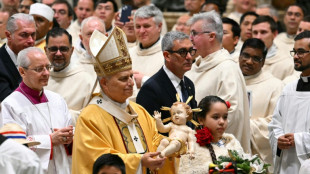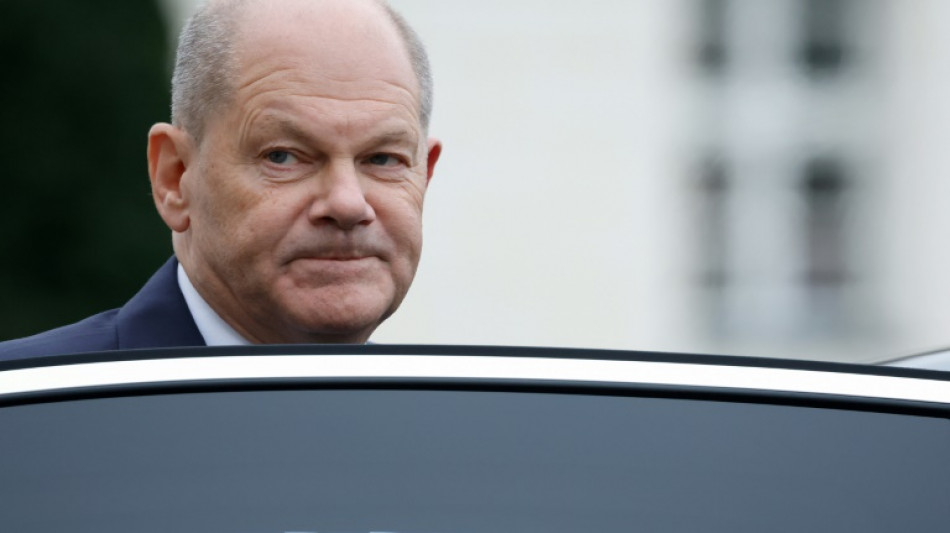
-
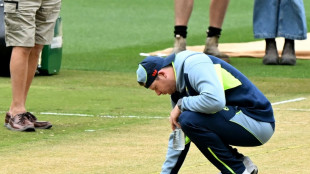 Australia opts for all-pace attack in fourth Ashes Test
Australia opts for all-pace attack in fourth Ashes Test
-
'We hold onto one another and keep fighting,' says wife of jailed Istanbul mayor

-
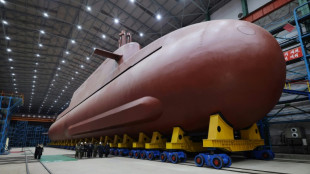 North Korea's Kim visits nuclear subs as Putin hails 'invincible' bond
North Korea's Kim visits nuclear subs as Putin hails 'invincible' bond
-
Trump takes Christmas Eve shot at 'radical left scum'
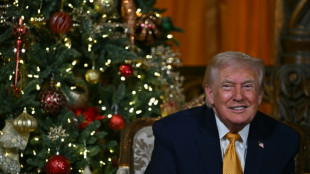
-
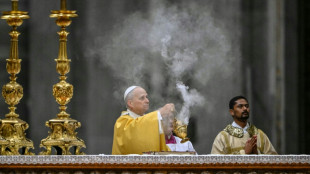 Leo XIV celebrates first Christmas as pope
Leo XIV celebrates first Christmas as pope
-
Diallo and Mahrez strike at AFCON as Ivory Coast, Algeria win

-
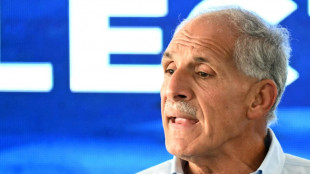 'At your service!' Nasry Asfura becomes Honduran president-elect
'At your service!' Nasry Asfura becomes Honduran president-elect
-
Trump-backed Nasry Asfura declared winner of Honduras presidency
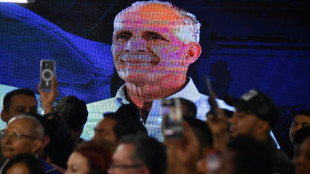
-
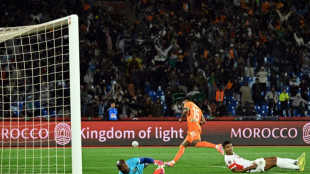 Diallo strikes to give AFCON holders Ivory Coast winning start
Diallo strikes to give AFCON holders Ivory Coast winning start
-
Spurs captain Romero facing increased ban after Liverpool red card
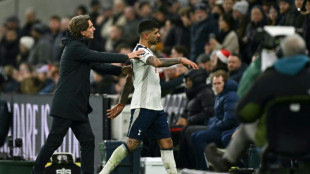
-
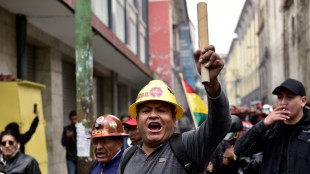 Bolivian miners protest elimination of fuel subsidies
Bolivian miners protest elimination of fuel subsidies
-
A lack of respect? African football bows to pressure with AFCON change

-
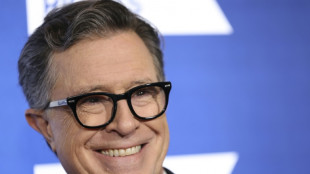 Trump says comedian Colbert should be 'put to sleep'
Trump says comedian Colbert should be 'put to sleep'
-
Mahrez leads Algeria to AFCON cruise against Sudan

-
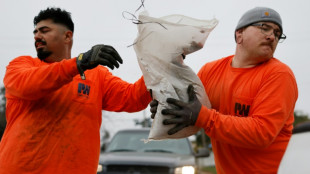 Southern California braces for devastating Christmas storm
Southern California braces for devastating Christmas storm
-
Amorim wants Man Utd players to cover 'irreplaceable' Fernandes
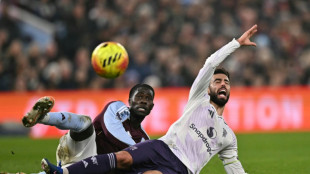
-
 First Bond game in a decade hit by two-month delay
First Bond game in a decade hit by two-month delay
-
Brazil's imprisoned Bolsonaro hospitalized ahead of surgery

-
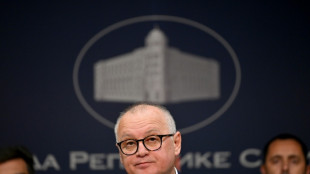 Serbia court drops case against ex-minister over train station disaster
Serbia court drops case against ex-minister over train station disaster
-
Investors watching for Santa rally in thin pre-Christmas trade

-
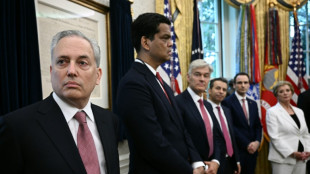 David Sacks: Trump's AI power broker
David Sacks: Trump's AI power broker
-
Delap and Estevao in line for Chelsea return against Aston Villa
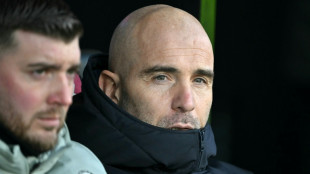
-
 Why metal prices are soaring to record highs
Why metal prices are soaring to record highs
-
Stocks tepid in thin pre-Christmas trade

-
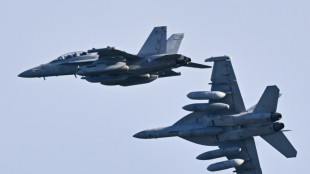 UN experts slam US blockade on Venezuela
UN experts slam US blockade on Venezuela
-
Bethlehem celebrates first festive Christmas since Gaza war

-
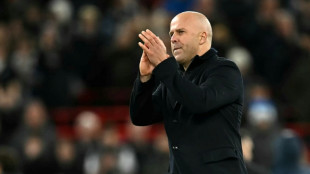 Set-piece weakness costing Liverpool dear, says Slot
Set-piece weakness costing Liverpool dear, says Slot
-
Two police killed in explosion in Moscow
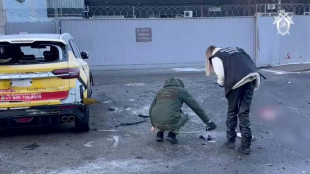
-
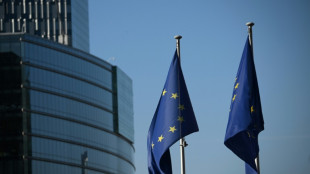 EU 'strongly condemns' US sanctions against five Europeans
EU 'strongly condemns' US sanctions against five Europeans
-
Arsenal's Kepa Arrizabalaga eager for more League Cup heroics against Che;sea
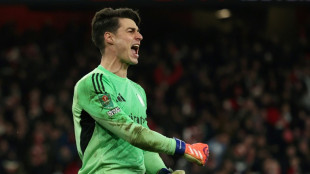
-
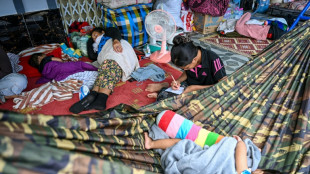 Thailand-Cambodia border talks proceed after venue row
Thailand-Cambodia border talks proceed after venue row
-
Kosovo, Serbia 'need to normalise' relations: Kosovo PM to AFP
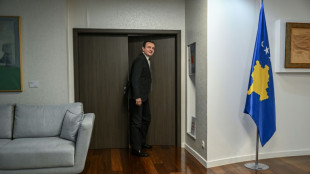
-
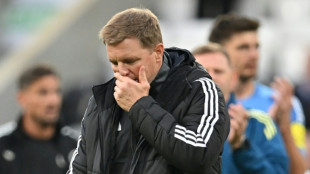 Newcastle boss Howe takes no comfort from recent Man Utd record
Newcastle boss Howe takes no comfort from recent Man Utd record
-
Frank warns squad to be 'grown-up' as Spurs players get Christmas Day off

-
 Rome pushes Meta to allow other AIs on WhatsApp
Rome pushes Meta to allow other AIs on WhatsApp
-
Black box recovered from Libyan general's crashed plane
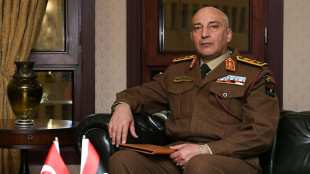
-
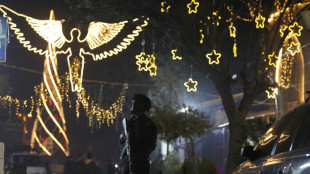 Festive lights, security tight for Christmas in Damascus
Festive lights, security tight for Christmas in Damascus
-
Zelensky reveals US-Ukraine plan to end Russian war, key questions remain
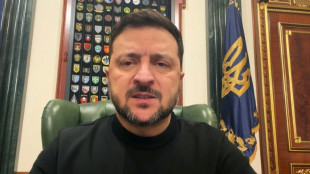
-
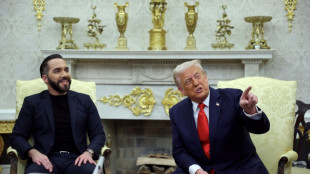 El Salvador defends mega-prison key to Trump deportations
El Salvador defends mega-prison key to Trump deportations
-
Stranger Things set for final bow: five things to know

-
 Grief, trauma weigh on survivors of catastrophic Hong Kong fire
Grief, trauma weigh on survivors of catastrophic Hong Kong fire
-
Asian markets mixed after US growth data fuels Wall St record

-
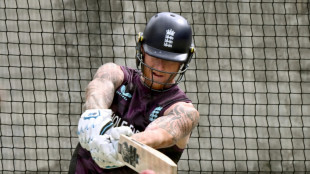 Stokes says England player welfare his main priority
Stokes says England player welfare his main priority
-
Australia's Lyon determined to bounce back after surgery
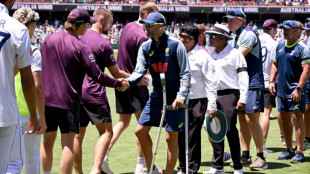
-
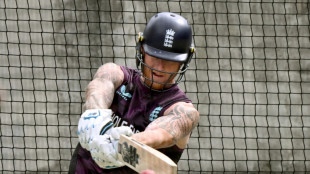 Stokes says England players' welfare his main priority
Stokes says England players' welfare his main priority
-
North Korean POWs in Ukraine seeking 'new life' in South

-
 Japanese golf star 'Jumbo' Ozaki dies aged 78
Japanese golf star 'Jumbo' Ozaki dies aged 78
-
Johnson, Castle shine as Spurs rout Thunder
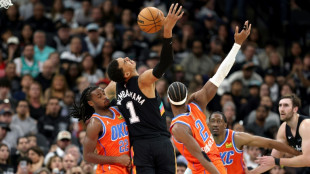
-
 Thai border clashes hit tourism at Cambodia's Angkor temples
Thai border clashes hit tourism at Cambodia's Angkor temples
-
From predator to plate: Japan bear crisis sparks culinary craze


Crisis-hit Germany headed for February 23 snap election
Germany, mired in political crisis, is headed for February 23 elections, the main parties agreed Tuesday, aiming to form a stable government after Chancellor Olaf Scholz's three-party coalition collapsed last week.
The two biggest parties agreed on the early timetable, which would see centre-left leader Scholz seek a vote of confidence on December 16, paving the way for the February vote, coalition sources said.
Scholz's Social Democrats (SPD), now in a minority government with the Greens, hammered out the compromise date with the conservative opposition Christian Democrats (CDU) and their Bavarian allies CSU.
The agreement seeks to quickly restore political stability at a time when Europe's biggest economy is set to shrink for a second year in a row and amid heightened geopolitical volatility, with wars raging in Ukraine and the Middle East.
The election date would mean Germany will be ruled by a lame-duck chancellor and stuck in the middle of its campaign period when Donald Trump is inaugurated as US president on January 20.
Embattled Scholz, who wants to run again despite poor poll ratings, initially suggested an election in late March but came under heavy pressure from all other parties to speed up the process.
The CDU is riding high in the polls and its leader Friedrich Merz had pushed strongly for an election as early as possible -- a demand backed by two thirds of voters, according to a recent survey.
"We don't have unlimited time to elect a new government in Germany, regardless of who leads it... because the world around us is not waiting," Merz said on Tuesday.
"It's not as if everyone is holding their breath and watching Germany in fascination, as decisions are taken in Europe, Asia and the United States.
"The world expects a Germany that is capable of taking action."
- Winter campaign -
The February 23 date would force politicians to run their campaigns in the dark and cold of winter, when voters will be less enthusiastic to flock to outdoor events than during the usual summer campaign seasons.
Under the deal brokered on Tuesday, Scholz would seek a vote of confidence in the week before the Christmas holidays in the lower house of parliament, which he is expected to lose.
President Frank-Walter Steinmeier, the head of state, will then have 21 days to dissolve the Bundestag, and elections will have to be held within the following 60 days.
CDU general secretary Carsten Linnemann said he hoped this will quickly restore a sense of stability.
"People are very nervous and don't know where the country is going," he told the public broadcaster ZDF.
He added that once there was more clarity on the timetable, "things will calm down and we can go into the election campaign".
Scholz took office in late 2021, taking over from the CDU's Angela Merkel, in a three-way coalition with the left-leaning Greens and the liberal and pro-business Free Democrats (FDP).
But mounting differences over economic and fiscal policy came to a head last week when Scholz fired the rebellious FDP finance minister Christian Linder, prompting the small party to leave the government.
Since then, Scholz's SPD and the Greens have carried on in a minority government that would need opposition support to pass any laws -- something the CDU/CSU had rejected in the absence of clarity on an election date.
- Future scenarios -
Scholz's coalition marked the first time a tripartite alliance has ruled at the federal level, and it may not be the last, given Germany's increasingly fragmented political party landscape.
Fears about immigration have driven the rise of the far-right Alternative for Germany (AfD) party. It is now polling at close to 20 percent, but other parties have pledged to shun it as a coalition partner.
The latest polls put the centre-right CDU/CSU alliance firmly in the lead at 32 percent.
To win a majority, however, the conservatives would likely need the future backing of the SPD, which is currently polling at 15.5 percent, in a so-called grand coalition, plus a third party.
Contenders for that spot, according to current polling, would be either the FDP, with five percent support, or possibly the Greens, who are polling at 11 percent.
Lindner, who has said he wants to be finance minister again, said on Tuesday that Merz "will almost certainly be the next chancellor of Germany. The only question is: Who will chancellor Merz govern with?"
O.M.Souza--AMWN
